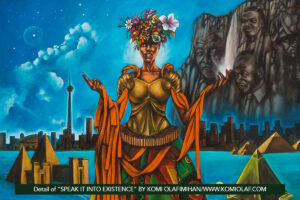
Capitalism is an economic, political, and social system in which private owners control the tools and materials required for human life, employ workers to produce things for a wage lower than the profit, and keep the surplus.
In capitalism, things like land, factories, and hospitals are owned by individual people and corporations. The wealth accumulated by private ownership is concentrated in the hands of the few, who can set and control wages for the many, who in turn depend on smaller returns to purchase the means of their survival.
Capitalism rests upon the myth that the “free market” can regulate the economy. The idea is that if corporations could competitively sell things to consumers without government regulation, then demand would fairly set pricing and supply. But lack of regulation over the market means that corporations seek to control as much of it as possible: creating monopolies, price inflation, and social crisis—all without accountability.
Inequality is a core condition of capitalist societies. Throughout history, capitalism has depended on colonialism, conquest, and other forms of political oppression. In the US, for example, the economic boom of the 18th century textile industry happened both because of the labor of enslaved Black people as well as the theft of Indigenous lands for cotton plantations.
















